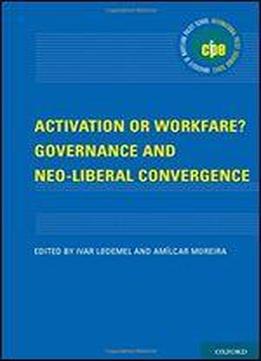
Activation Or Workfare?: Governance And Neo-liberal Convergence
by Ivar Lodemel /
2014 / English / PDF
2.3 MB Download
The last decade of the 20th century was marked by a shift in how welfare-states deal with those at the bottom of the income ladder. This shift involved the introduction/strengthening of work-obligations as a condition for receiving minimum income benefits - which, in some countries, was complemented by efforts to help recipients return to the labour market, namely through the investment in active labour market policies (ALMP). Based on case-studies of developments in the US and eight European nations (UK, Norway, Denmark, Netherlands, Germany, France, Portugal and the Czech Republic), this book argues that this first set of reforms was followed by a second wave of reforms that, whilst deepening the path towards the focus on work, brings important innovations- be it the tools used to help recipients back to the labour markets (ex., financial incentives) and in how activation policies are delivered (ex., integration of benefit and employment services). Looking at the array of developments introduced during this period, we discern two key trends. The first concerns the strengthening of the role of the market in the governance of activation, which is visible in the strengthening of the focus on work, or the marketisation of employment services. The second, concerns a move towards the individualisation of service delivery, visible in the expansion of the use of personal action plans or in efforts to streamline service delivery. Finally, we show that the onset of the sovereign debt crisis in Europe, has triggered a new wave of reforms. Whilst tentative only, our analysis points to a worrying trend of the curtailment or benefits (Portugal) and activation services (Netherlands, Czech Republic) to minimum income recipients and, in parallel, a further deepening of the focus on work-conditionality (UK and Norway).











